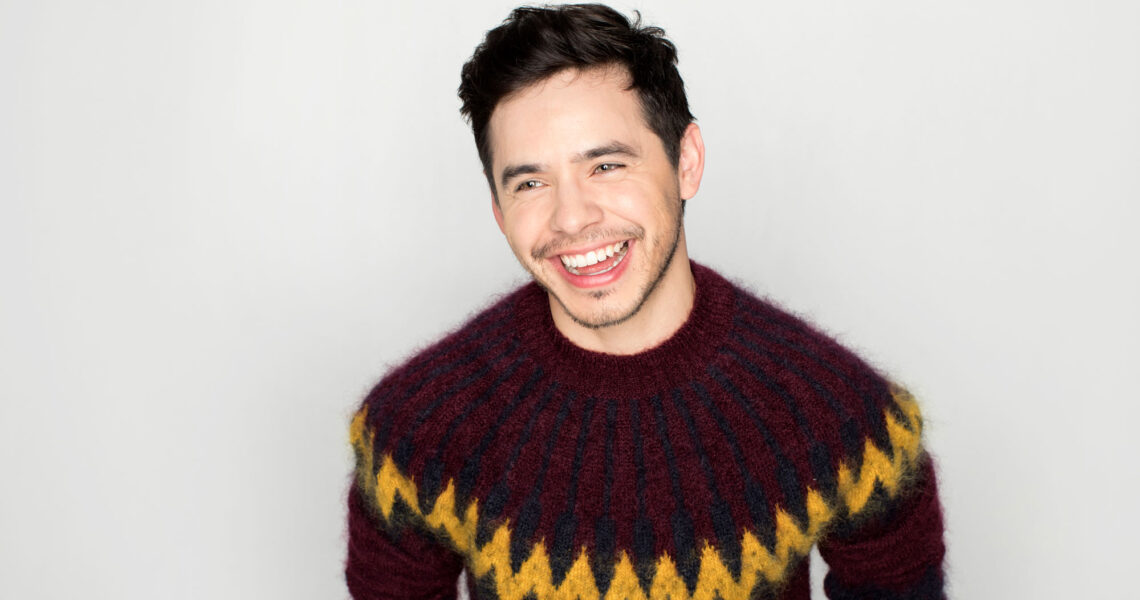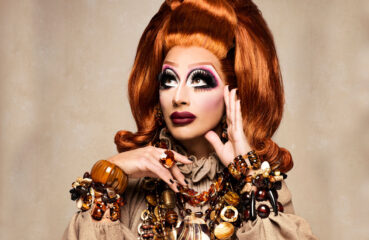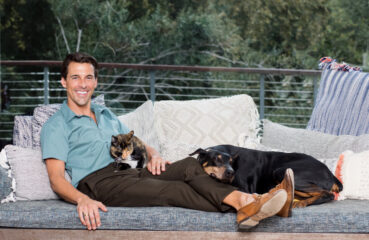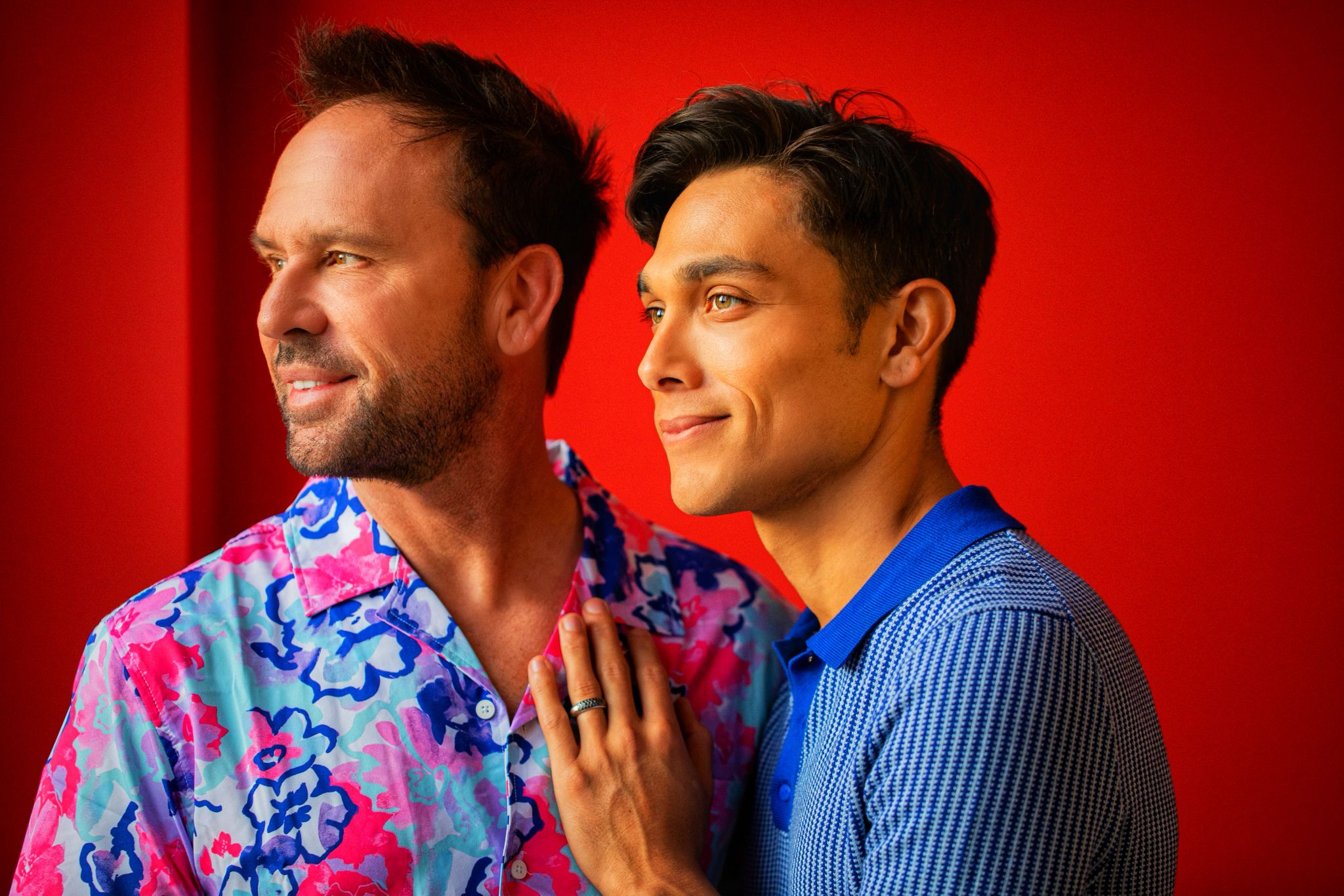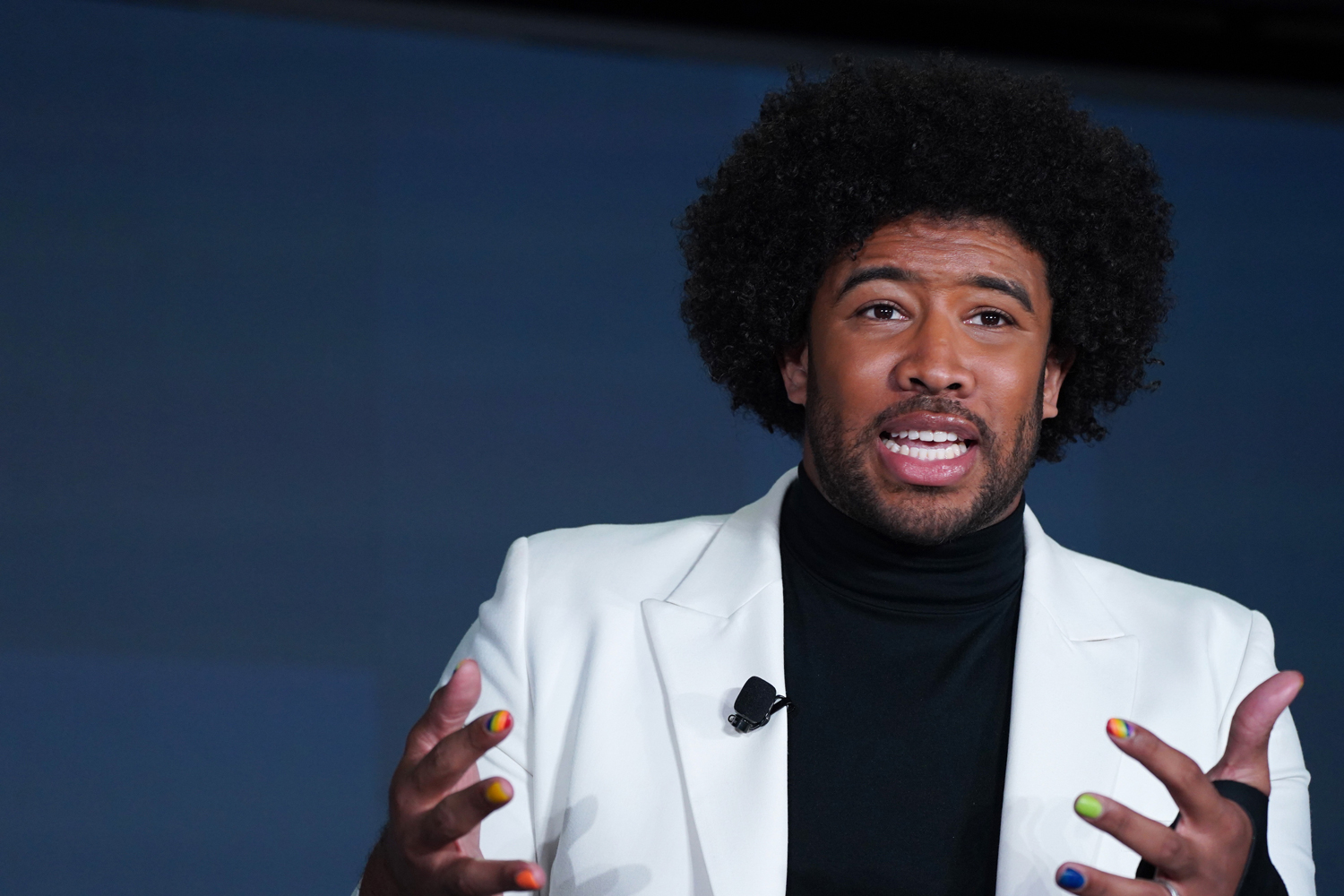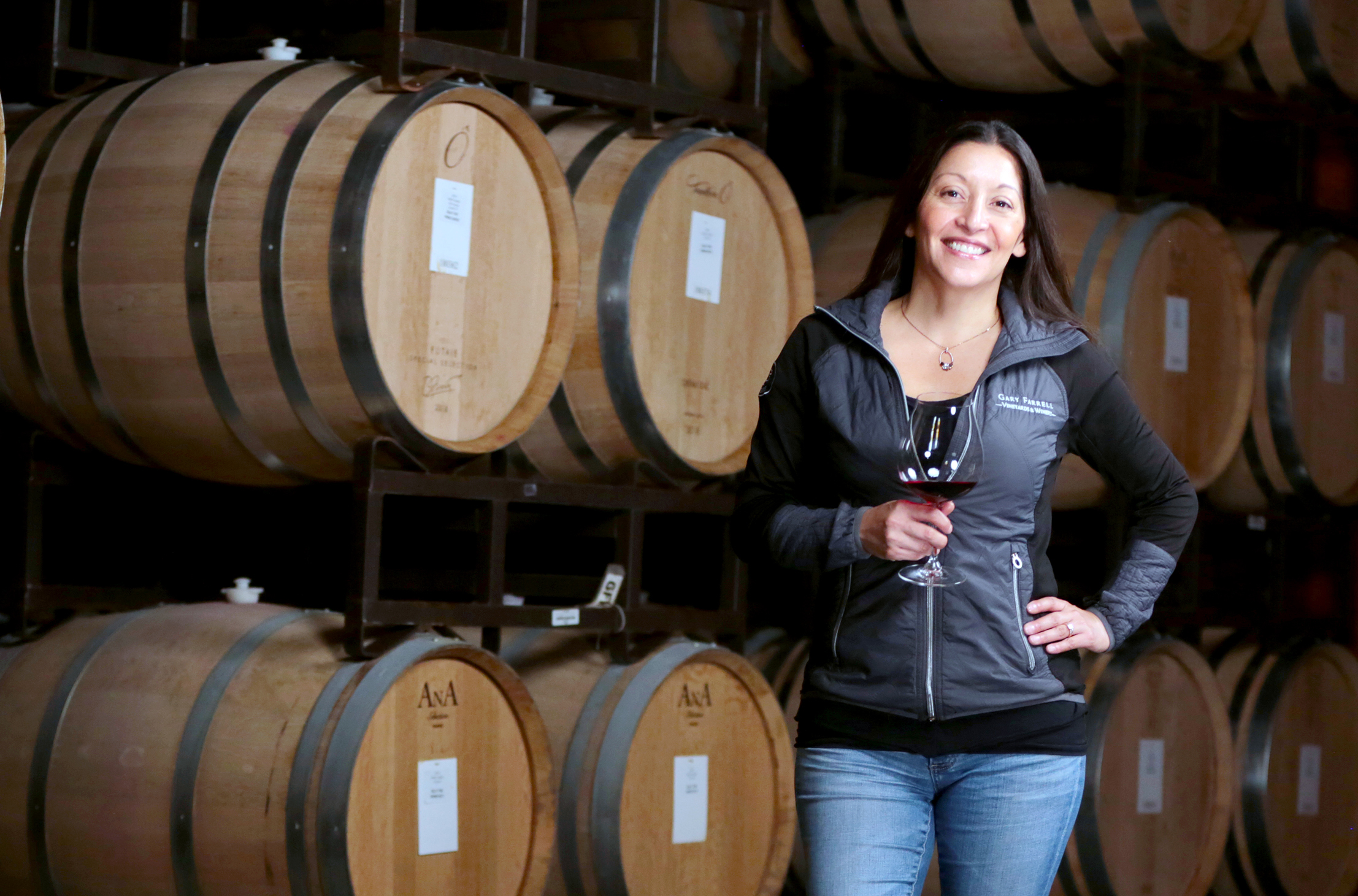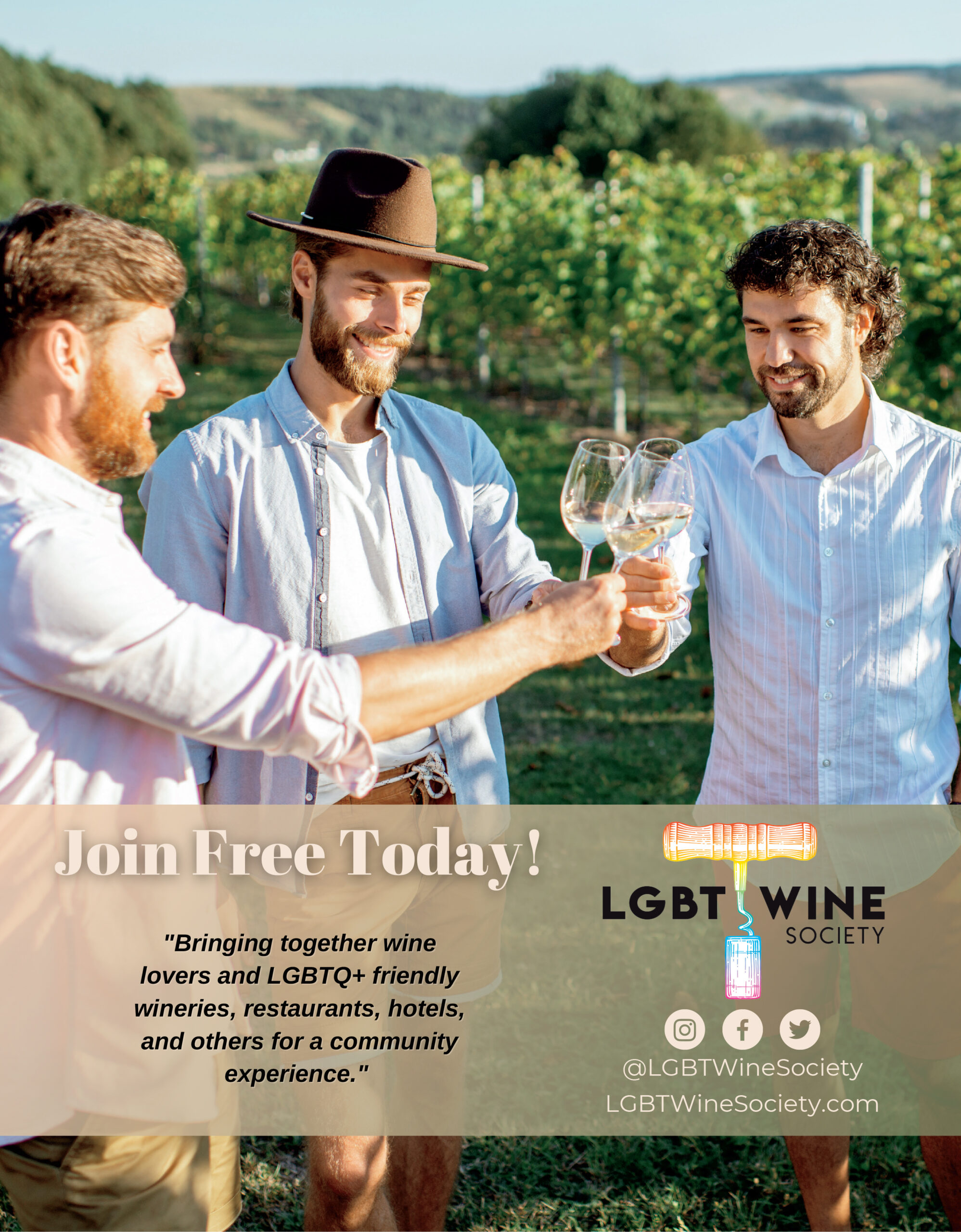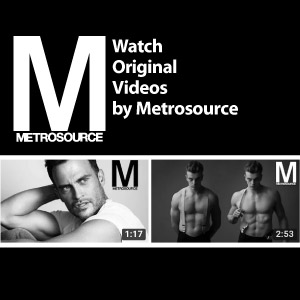David Archuleta became a household name when he was just 16 years old. With more than 44 million votes, he was declared runner-up and fan favorite for American Idol’s Season 7. After his appearance on the show, his career would launch into an immediate success with his debut single going double platinum and his debut album going gold. Album after album has reflected that success and, after more than a decade from his Idol debut, he is still a fan favorite garnering millions of music streams each month and selling out two national tours per year. In February, he will embark on his OK, All Right tour based on his latest album, Therapy Sessions.
With his innocent looks and angelic voice, the speculation immediately started as he hit the screen – was he, or wasn’t he? This summer, David confirmed that he is part of the LGBTQIA+ community. In a complexity that matches his life beyond the public eye, he has yet to define himself within the parameters of those letters but is using his voice to promote acceptance of LGBTQIA+ as well the importance of faith in one’s life. He remains a member of The Church of Jesus Christ of Latter-day Saints but also talks candidly about the struggle that remains between faith, religion, and sexuality. Fans will experience a very different Archuleta this tour … he has grown up and he has a lot to say.
His summer single, “Movin’,” shows us a very fluid David, exuding confidence and sexiness that presents a more mature Archuleta. Though not Latin music, it is Latin-inspired, an homage to the heritage and music that he grew up with. Music was always a part of his family.
I feel like I learned rhythm and groove from my mom’s Latin influence, her being from Honduras. From the jazz influence from my dad, I learned improv and feeling the language and expression you can have within a melody. I learned stage presence from my mom who also holds a passion for singing. My passion for music in general, came from my dad, and as I mentioned before, just taking risks with songs with ad-libs. Both of my parents encouraged me to believe that I was capable of being a performer – I was very insecure about it for a long time.
By the time he had hit American Idol at 16, he had already experienced years in the biz. He started singing at age six after inspiration from multiple views of the Les Miserables 10th Anniversary recording. By the age of 10, he was winning the children’s division of the Utah Talent Competition, which lead to television appearances as well as a stint on Star Search 2, winning that Junior Vocal Championship. His music experience in his youth was not just about the music, it was about the competition.
If I’m going to be honest, competing takes away what I enjoy about singing. I hate the comparison and the pressure and the idea of rivalry behind it. So, to get through competitions, I had to remove myself from the mentality of competing with others to simply competing with myself. Otherwise, it was hard to enjoy for me. At the same time, after doing competitions and seeing that I did well, even with other people competing, gave me the confidence I needed once again to think I was good and capable of it all. So, it’s a double-edged sword to help me have a new perspective on what I’m capable of.
The pros are the exposure and the learning experience of how to deal with a lot of pressure and attention. The cons are the pressure and attention and comparisons that come. You have to learn how to take the attention and opinions objectively and as an opportunity to gain your own perspective on who you’d like to become and how to improve, but also not let it define you and rely on what other people think of you to decide your every move. It will interfere with your freedom to express. But if you take it well, it can give you ideas on how to think outside of the box.
It is obvious that the producers of American Idol saw something from this young star, his first audition for the show was accompanied with a highlighted interview during which he chatted about his battle with vocal paralysis. His nervous demeanor while talking to Randy Jackson, Paula Abdul, and Simon Cowell was instantly endearing but his obvious professionalism kicked into gear as he launched into John Mayer’s “Waiting for the World to Change,” not even flinching when Randy Jackson decided to join in. The votes from the panel were unanimous … the rest is history. He emerged as an eternal fan favorite.
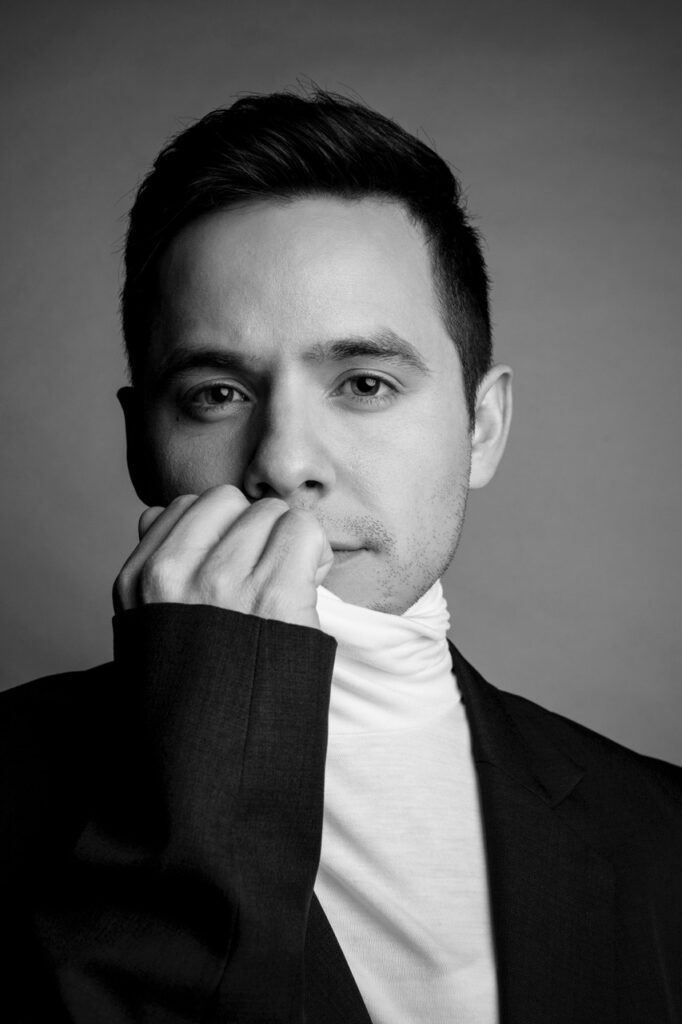
David Archuleta by MEGA Man
I didn’t think I had anything great or unique to offer. But perhaps it was because I was awkward with the attention being given. I’d like to think they were connecting to the performances the same way I connected to them, and that I prepared well enough to make it easy to share that experience with them and see music the way I see and feel it. I was a shy and casual kid who wasn’t looking for a whole lot of attention. A lot of families and normal TV watchers could feel the same way. So maybe it gave audiences a moment to connect on that level too.
Even with years of competing and vocal instruction, Idol would be a totally different experience for Archuleta. It would challenge the limits of any singer, in addition to David being only 16 years old. The hardest parts of Idol?
Just the amount of pressure and attention. It made it hard to focus on singing and working on the songs. We were swung around everywhere. The more attention we got gave less time to focus on the competition itself. A lot of times I just felt I didn’t have the energy to finish and keep giving a good show and keep the right energy and smile on my face. You feel exhausted by the end of it, and I think it showed on David Cook and my faces by the end of it. But I’d say it was a marathon worth running. Anything that takes time, effort, focus, and energy may wear you out but pushes you past what you thought were your limits and leads to many opportunities to grow.
We know from Idol history that some competitors make a name for themselves, some disappear into reality TV oblivion. Did reality TV give David a false idea of being successful in the music industry?
I don’t think it gave a false idea because it’s the route I took to achieve my success. It’s not the only one, but it was incredible to be in a show where the audience, which was a massive one, engaged in what I prepared each week and then supported me to continue my journey by voting in. It was a team effort with performer and voter and allowed me to gain a relationship with those who were investing on whether to become a fan and follow my journey or not. Even if they didn’t follow, they enjoyed seeing the process of me evolving in front of them.
Being in performance mode would become a mainstay in David’s life. He was the media and the fans’ sweetheart. Audiences clamored for that innocent boy they had seen on Idol; his smile was as much his brand as was his voice. How did David establish his own identity beyond the persona?
I think just over time with the years you learn you don’t always have to be “on.” Being on TV shows, you get trained to always be “on” for the camera and if you’re not then you’ve got a bunch of people telling you to smile more, put in more energy for the camera. After the fact, you learn you still need to somewhat turn on the energy and focus to give to an audience, but you can find your own way of doing it and still be yourself. I think it took me a few years though – even taking a break from music for two years to be a missionary in Chile for my church. It wasn’t until I came back and had a fresh new look and perspective on my career that I felt I could be more authentically myself while still bringing the energy to engage an audience for a performance or interview.
This year marks his nineth studio project, his creative process remains the same.
It usually starts with whatever is running around in my mind. Whether it’s something I’m contemplative about, stressing about, or excited about. I bring that into a writing room and start getting it off my mind to the writers, and it gets on paper. And we see what stories need to be told.
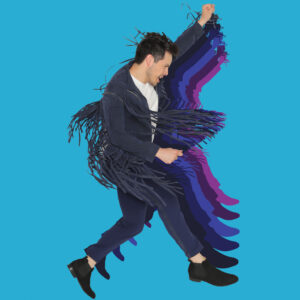
His album, Therapy Sessions, is a leap of faith for Archuleta. It is an unabashed and transparent look into David’s internal struggle, a long-term battle with himself.
I was going through therapy and trying to apply the steps it took to escape the barriers I had created for myself. Whether it was fear, loss, dwelling on the past, or anxiety. There’s a constant battle going on because so much of my mind doesn’t want to budge. The songs are a sort of a back and forth within the inner dialogue I have with myself.
The result is a matured and plaintive David, his voice has changed from that first Idol audition.
I’d say I’ve learned to use my own voice within more rather than trying to use my voice as others want. Whether it’s TV producers, record labels, my parents, or what I thought my management team expected from me. I’ve learned to use my voice to speak honestly about whatever I’m discovering to be my truth at that time.
He is also using his voice to talk about religion. While many members of the LGBTQ+ population have left an oppressive relationship with childhood religion, David continues to embrace the Mormon Church.
It’s given me the foundation to learn how to have a personal relationship with God, my Heavenly Father, I always like to say. It’s taught me the hope of a merciful and loving savior Jesus Christ who gives us grace when I have a hard time finding it for myself. I can be hard on myself a lot. So that grace of knowing someone is willing to forgive me even when I, or others, can’t is really encouraging to me. It gives me the perspective to look even beyond the moment and to dig in deeper for purpose.
His commitment to his faith was so strong he took two years off from his thriving career to complete his required work as a missionary. It was a humbling but inspiring experience for David.
I learned that I still have value even when I no longer have all the attention and popularity from a career. That was a big thing for me. Fame and popularity can hinder your self-worth because it can get you to rely too much on what others think of you and how much attention you get to equal your self-worth. And you learn that it is such an unpredictable and ever-changing variable to measure. I learned to lose myself in serving others and God, helping them learn how to have a relationship with Him. And I felt like I found so much of myself in the process.
Religion continues to be a headline-making thorn in the side of many of our community. Where inclusion and love should be the fundamentals on any faith based on the Bible, many have only messages of damnation, abuse, and even ostracization. According to David, there are misconceptions about his religion and our community.
I think the biggest one is that you can’t be part of the LGBTQIA+ community and still be a member of the Church. All are welcome in a church meeting no matter what sexuality or gender you identify with, no matter what kind of relationship you’re in. Anyone can go and worship on Sundays. And I think that’s something most people don’t know.
This fall, he will release his first book, a children’s book based on the lyrics of his anthem “My Little Prayer.” It is a simple story about the power of faith, friendship, and prayer. His advice for those currently struggling with their faith and sexuality?
I’d say first – be compassionate with yourself! It’s a hard place. Church culture where it’s at still has a hard time wrapping its head around what it means to have a sexuality and attractions that aren’t the standard typical heterosexual ones. A lot of how it’s been looked at comes from fear of talking about sexuality in general, I think, and that’s a whole other topic. Also, give yourself time. Have patience with yourself. When you feel ready and find someone who you know you can open up to, have the courage to do so. It doesn’t always have to be someone super close to you. Just someone who you know will listen and not judge you.
Maybe not every community is ready to have that discussion, but I think we’re getting there. Even seven or eight years ago when I came out to my family, I just wasn’t ready to have that conversation with the public yet. I still needed time to understand myself better and find compassion for myself.
David’s coming out would come in phases, starting back in 2014.
My family handled it perfectly. I came out to my mom and younger sisters first. They just gave me a hug and told me they loved me and kept treating me as they always did. I didn’t come out to my brother and dad until this year. I was afraid of what men would think of me admitting I had feelings for dudes, but they were supportive as well. Funny enough, my dad has been the most open-minded from the start. He would try to talk to us as kids about how he went to a gay bar with friends when he was younger to see it for himself and without the misconceptions from other people. I didn’t want to hear it then because I didn’t understand it and process it yet. This time, a few months ago when I talked to him, I appreciated the story and him being open-minded to see without judging and assumptions in a whole different way. I don’t go to clubs or bars regardless of whether it’s a gay bar or your average straight bar, just because I’m not a nightlife person and like to keep home. But I still appreciate my dad trying to say in a long way that he supported and loved me and was happy for me to bring the conversation to our community who simply hasn’t had a lot of exposure to what it’s like to be open about sexuality that’s different from the norm.
This year, his coming out would also become public. The ever-divisive world of social media became a flurry of congratulations and support to digital eye rolls and scoffing at his commitment to religion. Regardless of the reception, it was something he had to do for himself.
I still was coming from a place that I thought I could influence my sexuality if I focused on the right things like marriage and kids and finding a girl to start that with. When I was feeling too much shame, anger, and resentment, even self-hatred that I couldn’t get it to work after several attempts, I realized I needed to be honest about what I was experiencing. I was thinking God must not love me because I couldn’t be straight. Then I had an experience where I was praying every day for Him to help change me, because He had the power to remove this flaw from me, and He came to me lovingly but clearly saying, “David, you need to stop asking me this. I created you how you are and with intention and purpose. You see this as a flaw and I don’t, and it’s time for you to understand what that means. I don’t see it the same way you do.”
I also realized I needed to help people in my same situation to have more compassion for themselves. They may have had misconceptions about it, and that it was more a cultural stance on it in the church rather than how God really sees us. I knew I needed to show people with similar values that being LGBTQIA+ didn’t always look how they thought. That I could still be who I always have been, still have a relationship and seek God in my love, and still have sexuality/physical attractions that were different and that being attracted to men was not something I just looked to out of curiosity. It’s something I’ve had since kids first start developing feelings, intensified in puberty, and no matter what I tried to do to push it away and change it for all my life, it’s not how it works. And instead of hating myself for it, I needed to look at it without judging myself so harshly and see myself without hate or despite. I had to be willing to view acceptance differently.
According to Archuleta, his coming out only adds to his thriving career, he is not afraid of any ramifications.
I value honesty and being true. So, I think it helps me to have that space to have honest and sincere conversations about things important to me and what I go through in my life. Most of my music comes from that place, and I hope it will help me continue to create things that will help people feel more in tune with themselves and with their creator.
Surprising to hear is the positive response he has received from the Mormon Church.
I was extremely surprised at how loving and supportive they’ve been. I’m not an official representative or spokesperson for my church, but I am a participating member who a lot of people see and watch. This has caused me to become this sort of unofficial spokesperson and even like a role model to a lot of people from my church. That made me extremely nervous, and even more embarrassed at the fact that I couldn’t figure out my sexuality. But when I opened up and was as sincere as I knew how, they’ve shown their willingness to walk with me and share my journey and mistakes (or what I thought would be mistakes). My actions are my own and I wouldn’t say everything I do has a stamp of approval from the official church, right? [Laughs] But I will say coming out and exploring my attractions aren’t a step away from God. For me, I’m going into this scary territory because it’s where my relationship with God has brought me thus far. And I’m trusting in Him. I think, personally, he’s also trying to teach me attraction isn’t a sin and has a purpose. I can feel joy and connection and bond to whom he’s given me those feelings. I make personal choices like saving myself for marriage, but I would do that whether I was in a relationship with a guy or gal. So, things like that help me stay true to my personal values.
In our current age of added letters and ever-evolving ideas of sexuality, David does not know what his role in our community is or will become. But his voice is now officially added to ours. Perhaps his ideals can work towards building better bridges between established religions and our family.
I would say thank you for being willing to make room for someone like me to be heard. I know a lot of people who have come from religious upbringings haven’t had the same response nor support, especially in the past when it was even more taboo to open up about sexualities outside the norm. So, I appreciate all the more the support and compassion y’all have shown to me in my personal experience and journey. I hope we can take advantage of the progress made to create a safer place for people who find themselves between the two worlds of faith and in the LGBTQIA+ community. I hope the place I come from and the conversations it starts can help continue the work anyone else in similar positions has already started. I also hope help find healing for people who’ve felt pushed out of family and community where they have longed to find acceptance, and create a space for anyone to continue work to help LGBTQIA+ people have a place of acceptance with people of faith, and that people of faith can also have a place of acceptance in the LGBTQIA+ community. I don’t have all the answers, but I hope to help create more space and conversations by simply being honest and vulnerable in my experience.
David will kick off an exhausting, multi-city tour in February at the iconic Troubadour in Los Angeles. Audiences who have seen him perform before will no doubt notice the change in David’s voice, and new fans inspired by David’s coming out will no doubt experience some inspiration for their own journey. No matter the performance, David’s pre-show ritual is the same.
I always take a little moment to vocalize and say a prayer. Getting to perform is a gift, just as having something to give to an audience is a beautiful gift to share. In prayer, I give thanks for that and ask my Heavenly Father to remind me that that’s why I’m here in the first place. To share a gift to bring other people joy, help them find meaning and purpose in whatever way they may need it.
___________________
Writer’s Note: Having worked as a professional singer in the Catholic Church for more than 13 years at numerous parishes, chatting with David was an emotional journey. I was fired, unceremoniously, after bringing my then-boyfriend to Easter service. From that point on, my relationship with religion was marred. Even hearing the words religion or faith instantly cause me to bristle. At first glance, I question anyone who can subscribe to a religion that has been the cause of so much hurt towards our community. Talking with David, I realize it takes courage and strength to stay committed to one’s faith in order to cause change. It takes foresight to take religion out of the hands of individuals who perpetuate an unfounded fear and hatred towards our community and instead, keep the focus on the driving force of that faith, the personal relationship between yourself and whatever beliefs you have.
(featured image by: Cyrus Pamganiban)
Last modified: October 1, 2021

